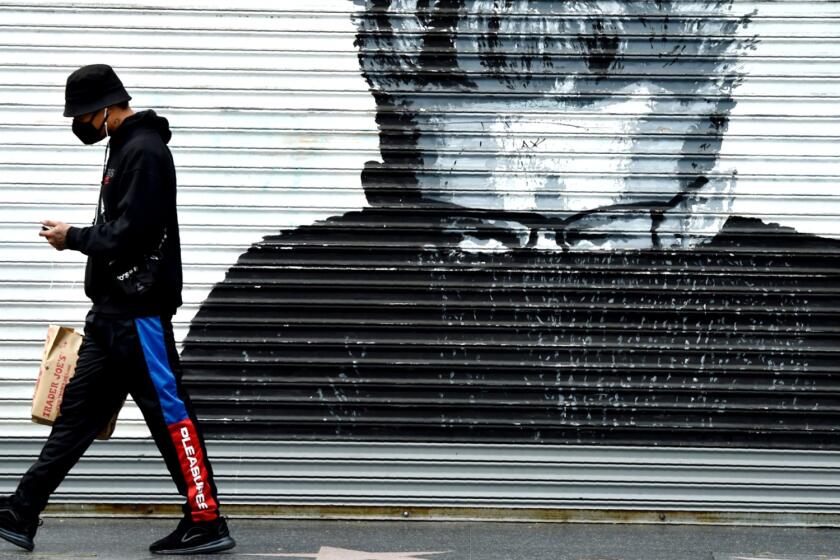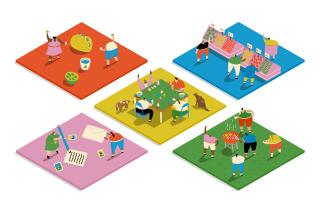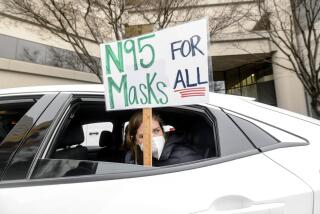Not going coronavirus outbreak alone: Some find quarantine buddies to lessen isolation
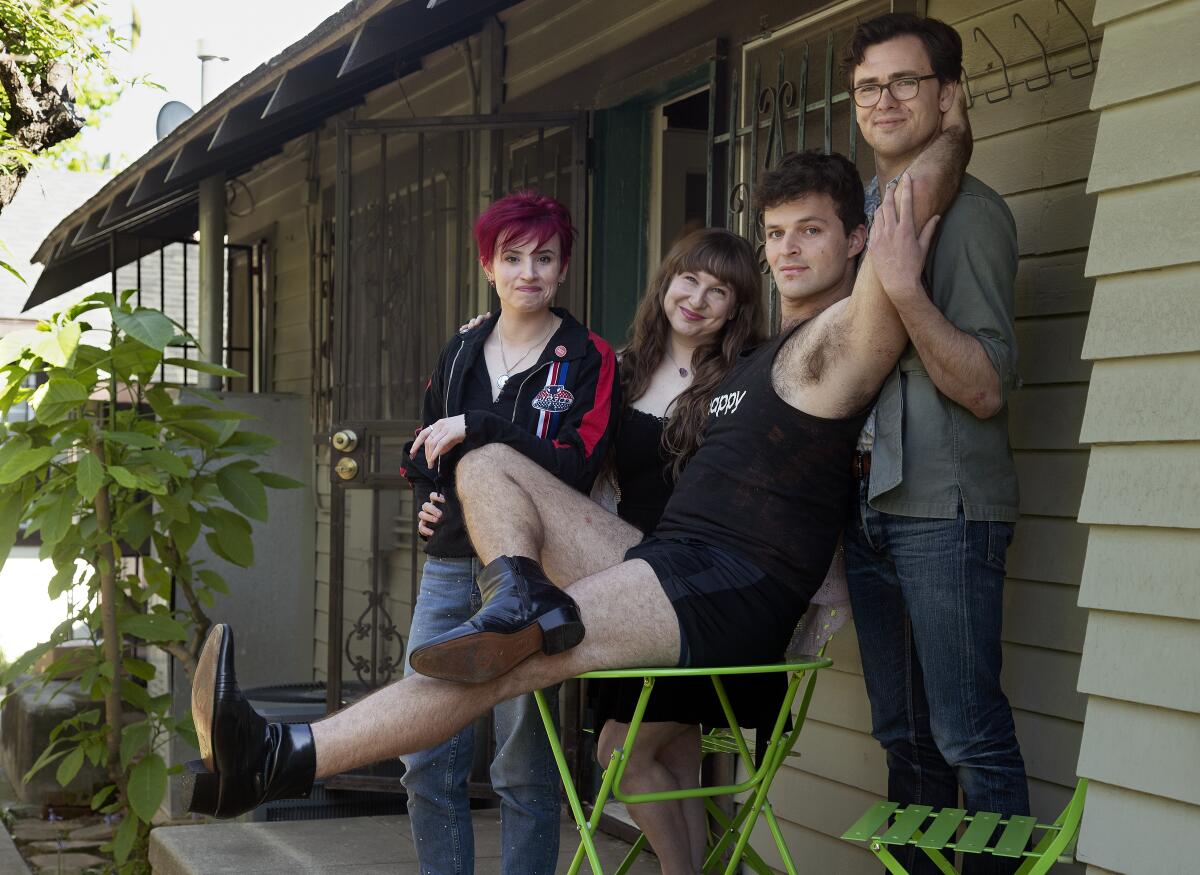
- Share via
They call themselves the quarantine gang.
They are not blood-related. They are not romantic partners. They are friends brought together by the unprecedented restrictions on face-to-face contact that have upended life across America to slow the spread of the novel coronavirus.
The foursome — a songwriter, a therapist and two journalists — has decided to be a family, of sorts, in a situation no one could have imagined a few months ago. They share meals, huddle together on the couch strumming guitars, exercise together, even hug.
All four are single. The thought of weeks and potentially months alone was too much to bear. So they made a pact. They would see each other, and only each other.
They are not the only ones creating impromptu families in the time of the coronavirus. People who live alone are especially tempted to acquire a quarantine buddy or two, for mutual aid as well as for human contact.
Under stay-at-home orders from Los Angeles city and county officials, people should go out as little as possible, and group gatherings are forbidden. Quarantine buddy arrangements are sometimes met with stern disapproval from those who adhere to a traditional definition of family.
Some public health experts emphasize the increased risk of contagion that comes with a larger social circle. Others say that forming self-contained units is an acceptable way to lessen the psychological stresses of solitude.
In a city like Los Angeles, where people arrive from all over the world to make it in creative industries, friends often serve as surrogate families for those far from home.
Laurie Penny, a television writer and journalist from England, shares her Silver Lake house with a roommate, songwriter Natti Vogel. Another member of the quarantine gang lives nearby, with the fourth in West Hollywood.
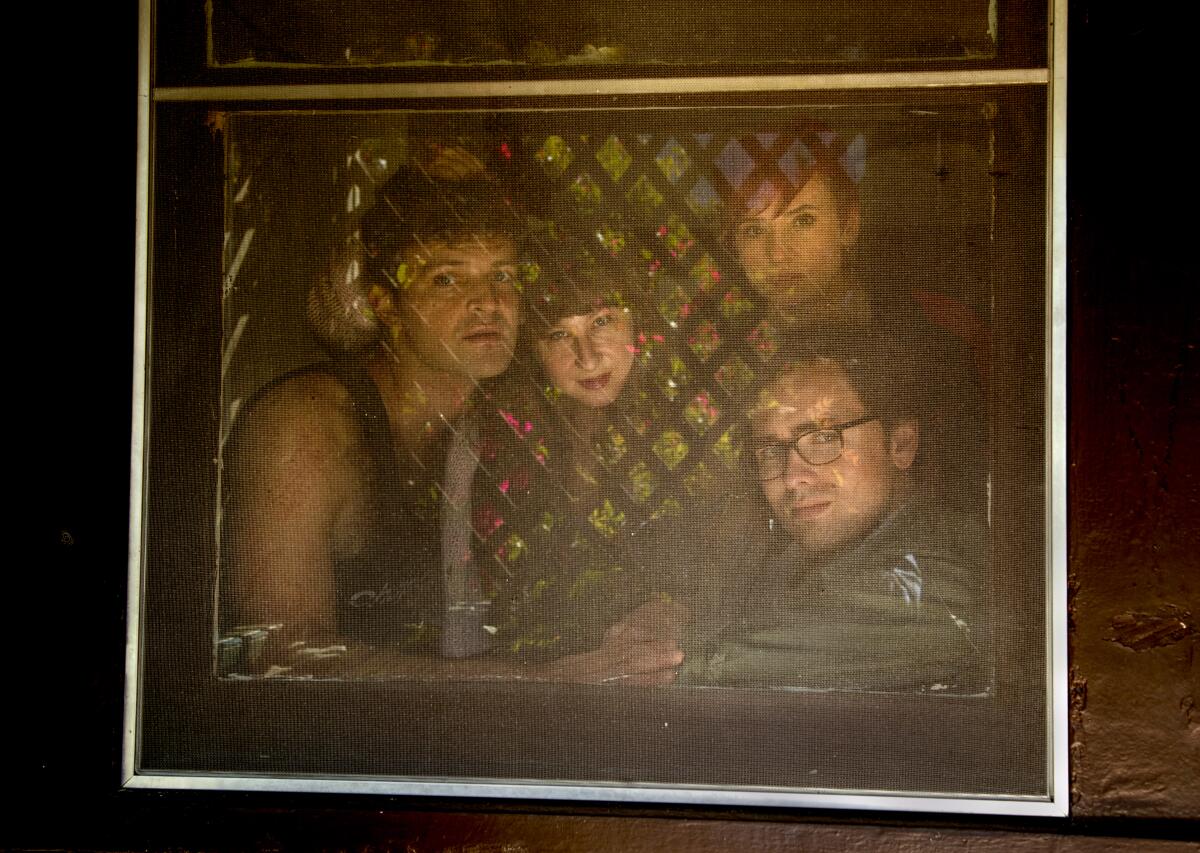
“If I was by myself out here in L.A., so far from my family, I think I would have gone a bit bonkers,” said Penny, 33.
Like many quarantine circles, this one has unwritten rules. Wear gloves when you press the crosswalk button. Keep at least six feet away from anyone outside the group. If you are thinking of doing something potentially risky, like a boxing workout with a friend, consult the others.
The boxing was unanimously rejected, as was a request to host someone who needed a place to stay. Besides the quarantine gang, they refer to themselves as the pod, los quarantinos or fourcan (a play on toucan).
The four had already been in close contact when stay-at-home orders came down from the governor and the mayor. All are musicians and had been filming a music video together. They had also been back and forth between each other’s apartments after Penny and Vogel got bedbugs.
Sam Braslow, a freelance journalist, considered three options: Move in with his parents and 92-year-old grandfather, isolate himself in his studio apartment or throw in his lot with his three friends.
Staying with his biological family would have felt like regressing to childhood, with all-too-predictable annoyances ensuing.
“If I had to choose who to go crazy with, I would rather do it with my more intentional family,” said Braslow, 26. “There’s something novel about this. It’s an adventure.”
A small group of people does not have to be blood-related to safely practice social isolation, said Jeffrey Martin, an internist and professor of epidemiology and biostatistics at UC San Francisco.
If members live in separate houses, they can reduce risk by having the same person always get groceries for the whole group and by receiving deliveries at only one address, he said.
The latest updates from our reporters in California and around the world
As the crisis wears on, if people are completely isolated, they could act out in ways more damaging than associating with the same few individuals, Martin said.
“This is all about limiting the number of new contacts in your life,” Martin said. “Of those people who you contact, they are a product of all their contacts. If you can keep that circle small, it doesn’t matter if you’re related or not.”
It is impossible for all Americans to lock themselves in a room for weeks, so people are figuring out their own boundaries, said Howard Forman, a professor of diagnostic radiology, public health and economics and management at Yale University.
Over a long period of time, people will need some human contact, he said. He himself lives alone and has hung out with several friends in recent days — from a distance of at least six feet, which he recommends for all quarantine buddies. He works as an emergency room radiologist and looks forward to the social interaction on his shifts.
“It’s certainly better to be in a room with someone than alone with Zoom constantly,” said Forman, referring to the video-communication service. “I don’t see that as conveying risk. But I don’t get why they wouldn’t want to maintain social distancing.”
In an essay on the Medium website, an infectious disease epidemiologist cautioned about the extended transmission chains that can infect small family groups.
“If your son visits his girlfriend, and you later sneak over for coffee with a neighbor, your neighbor is now connected to the infected office worker that your son’s girlfriend’s mother shook hands with,” wrote Jonathan Smith, a Ph.D. candidate at Emory University and a lecturer at Yale University.
Smith added that small indulgences, like “one quick little get together,” could undermine the entire contagion-reducing framework.
Yimu Xue, who lives in Pico-Robertson, chose her quarantine buddies carefully. One lives close by, and the two go on walks around the neighborhood. The other buddy comes over for wine and TV watching, bringing her own glass and sitting on the opposite end of the couch. Xue cleans her apartment before and after visits.
Xue was already seeing these two friends regularly before the stay-at-home orders came down. She trusts them to go out only when necessary. Until the pandemic is over, she will not see anyone else, other than bringing groceries to her mother.
Xue has been living by herself since her roommate decamped to be with family. Quarantine buddies are a coping mechanism, she said, along with reorganizing her house three times.
“We’re all trying to find a missing puzzle piece of our lives again,” said Xue, 28, a freelance producer and creative director. “This is a very infrequent light that we use to add a little bit of levity and add a little bit of what we miss about being social, because we are social creatures. I don’t want to be scrolling on Instagram all day watching people.”
There is plenty of levity in the apartments frequented by the quarantine gang foursome, which can take on the air of a “young strangers thrown together” reality show.
Vogel, the songwriter, describes the group as “well-read, gifted, currently dangerously sex-starved, deeply compassionate nut jobs. We are working round the clock to keep one another entertained, inspired, fed and virus-free.”
They have read through plays, recorded songs together, performed for one another. Vogel led a concert from their front porch, with the audience social-distancing six feet away. As thanks, a neighbor dropped off milk and some squash.
“It’s like being theater kids again,” Penny said.
They message potential mates on dating apps, but it is impossible to meet in person. As the days wear on, they have discussed a no-hooking-up rule for the group.
All are fortunate to still have paying jobs.
Pam Shaffer, the therapist, is swamped with clients weighed down by coronavirus anxiety. On Zoom, she counsels them on how to deal with uncertainty, loss of control and grief about canceled plans.
She is avoiding her older parents, despite their pleas to come over, ordering groceries for them on Amazon instead.
“I’m not going to your house because I love you,” Shaffer, 38, said of her parents.
Vogel is accepting commissions. He has written a coronavirus nursery rhyme — “We’re grateful for our groceries/Corona, corona, we all bow down” — and a song about how to unplug from social media and find the energy within.
The group is deciding whether to expand its ranks with another friend. Sometimes, the discussion veers toward a touchy subject: What is so important to you that you would choose it over the group and be cast out?
Vogel’s vulnerabilities are easily pinpointed by his friends: staying fit at the gym and recording at his musical collaborator’s studio.
“We need to care for each other,” Vogel said. “That’s why we freak out as a group when someone talks about breaking quarantine.”
More to Read
Sign up for Essential California
The most important California stories and recommendations in your inbox every morning.
You may occasionally receive promotional content from the Los Angeles Times.
